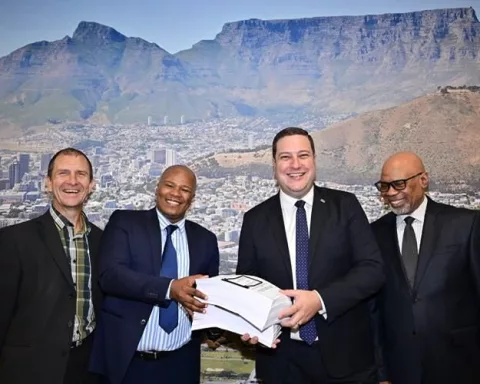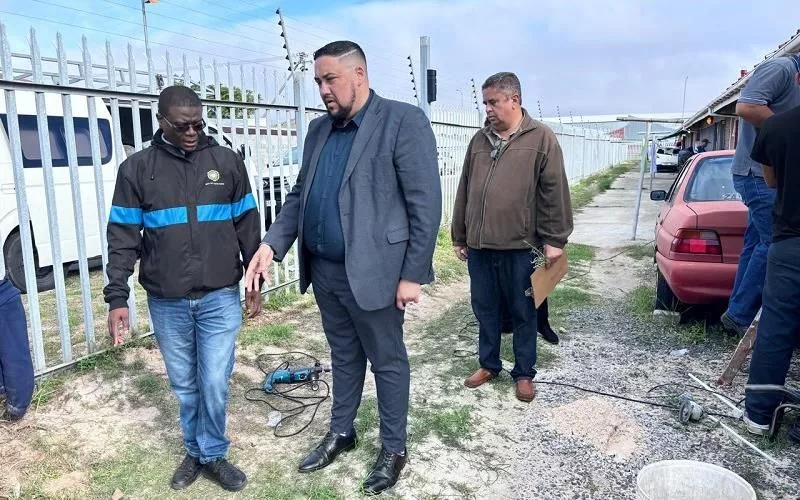Cape Town’s proposed budget for 2024/25 focuses on promoting social inclusivity and economic advancement. The city’s social package, tailored to the needs of the underprivileged, retirees, and general citizenry, is unmatched among South Africa’s metropolitan regions. The budget sets aside a significant chunk of its capital budget for infrastructure development, concentrating on the poorest and fastest-growing areas, and is expected to yield approximately 130,000 construction-related jobs over the next three years. Cape Town’s commitment to cultivating an environment of inclusivity and economic expansion serves as a model of progress.
Cape Town’s proposed budget for 2024/25, named ‘Building for Jobs,’ showcases the city’s persistent endeavors to promote social inclusivity and economic advancement. The budget’s social package, unmatched among South Africa’s metropolitan regions, is tailored to the needs of the underprivileged, retirees, and the general citizenry, underlining the city’s drive towards urban development and social fairness. The city’s dedication to progress extends beyond basic social support services. The city sets aside a significant chunk of its capital budget for infrastructure development, concentrating on the poorest and fastest-growing areas.
A Testament to Good Governance and Social Inclusion
Cape Town’s proposed budget for the fiscal year 2024/25, named ‘Building for Jobs,’ shines a beacon of hope for the power of effective governance. It showcases the city’s persistent endeavors to promote social inclusivity and economic advancement. The budget’s social package, which is unmatched among South Africa’s metropolitan regions, is a clear expression of this commitment. This well-rounded plan is tailored to the needs of the underprivileged, retirees, and the general citizenry, underlining the city’s drive towards urban development and social fairness.
Pro-Poor Measures and Support for Elderly Community
Central to Cape Town’s proposed social package lies a collection of measures aimed at improving the living conditions of low-income families. The city is a forerunner in the provision of free water, setting the standard at 15 kilolitres. Additionally, the prerequisites for a full rates rebate and lifeline electricity are comprehensive, covering property owners with values up to R450,000 and R500,000, respectively, and with a monthly income of less than R7,500.
The city’s dedication to its senior citizen community is demonstrated by its policies regarding pensioners’ rebate and lifeline electricity criteria. Contrary to other metropolitan areas, Cape Town sets the monthly income cap at R22,000, irrespective of property value. These efforts are reflections of a city administration that values social support and inclusivity.
Providing for Residents and Commitment to Social Support
The city’s achievements in delivering for its residents are highlighted by data from StatsSA’s non-financial census. Cape Town has the largest proportion of residents reaping the benefits of free basic water and electricity. The city outpaces its closest competitor by a margin of 10 percentage points for free electricity provision and by 25 percentage points for free water and sanitation.
Cape Town’s dedication to progress extends beyond basic social support services. The city sets aside a significant chunk of its capital budget for infrastructure development, concentrating on the poorest and fastest-growing areas. An astounding R9 billion, accounting for 75% of the capital budget, is slated to be invested in projects designed to correct historical social injustices. The city’s resolve to create a ‘city of hope’ is apparent in these efforts.
Job Creation and Financial Management
These infrastructure projects are expected to yield approximately 130,000 construction-related jobs over the next three years, directly addressing the national unemployment crisis. Cape Town, already possessing the lowest unemployment rate among South Africa’s metropolitan areas, is strategically investing in its growth and development.
Ratepayers also enjoy the fruits of Cape Town’s prudent financial stewardship. The city’s property rates for commercial, industrial, and residential properties are the lowest among South Africa’s metropolitan areas. According to a statutory formula used by municipalities, the city’s property rates are 32% lower than Johannesburg’s for commercial properties, 36% lower for industrial properties, and 28% lower for residential properties.
Promoting Economic Growth and Inclusivity
As Mayor Geordin Hill-Lewis states, “Cape Town is already the city where a person is most likely to find a job, and we plan to do much more to grow our economy in the years to come to the benefit especially of lower-income households.” This declaration is a testament to the city’s commitment to cultivating an environment of inclusivity and economic expansion.
To conclude, Cape Town’s budget proposal for the fiscal year 2024/25 serves as a model of progress, seamlessly incorporating economic growth with social development. The city’s tactics, enshrined in the ‘Building for Jobs’ budget, offer a glimpse into the potential outcomes when effective governance aligns with a clear vision of social justice.
1. What is Cape Town’s proposed budget for 2024/25 focused on?
Cape Town’s proposed budget for 2024/25 is focused on promoting social inclusivity and economic advancement, with a significant portion of its capital budget set aside for infrastructure development in the poorest and fastest-growing areas.
2. What is included in Cape Town’s social package?
Cape Town’s social package includes measures aimed at improving the living conditions of low-income families, such as free water and comprehensive prerequisites for a full rates rebate and lifeline electricity for property owners with values up to R450,000 and R500,000, respectively, and a monthly income of less than R7,500. The city also has policies regarding pensioners’ rebate and lifeline electricity criteria, with a monthly income cap at R22,000, regardless of property value.
3. How does Cape Town deliver for its residents?
According to data from StatsSA’s non-financial census, Cape Town has the largest proportion of residents benefiting from free basic water and electricity, surpassing its closest competitor by a margin of 10 percentage points for free electricity provision and by 25 percentage points for free water and sanitation.
4. How many construction-related jobs are expected to be created by Cape Town’s infrastructure projects?
Cape Town’s infrastructure projects are expected to yield approximately 130,000 construction-related jobs over the next three years, directly addressing the national unemployment crisis.
5. How does Cape Town’s property rates compare to other metropolitan areas in South Africa?
Cape Town’s property rates for commercial, industrial, and residential properties are the lowest among South Africa’s metropolitan areas, with rates 32% lower than Johannesburg’s for commercial properties, 36% lower for industrial properties, and 28% lower for residential properties.
6. What is Mayor Geordin Hill-Lewis’ statement about Cape Town’s economic growth?
As stated by Mayor Geordin Hill-Lewis, “Cape Town is already the city where a person is most likely to find a job, and we plan to do much more to grow our economy in the years to come to the benefit especially of lower-income households.” This declaration emphasizes Cape Town’s commitment to promoting economic growth and inclusivity.












